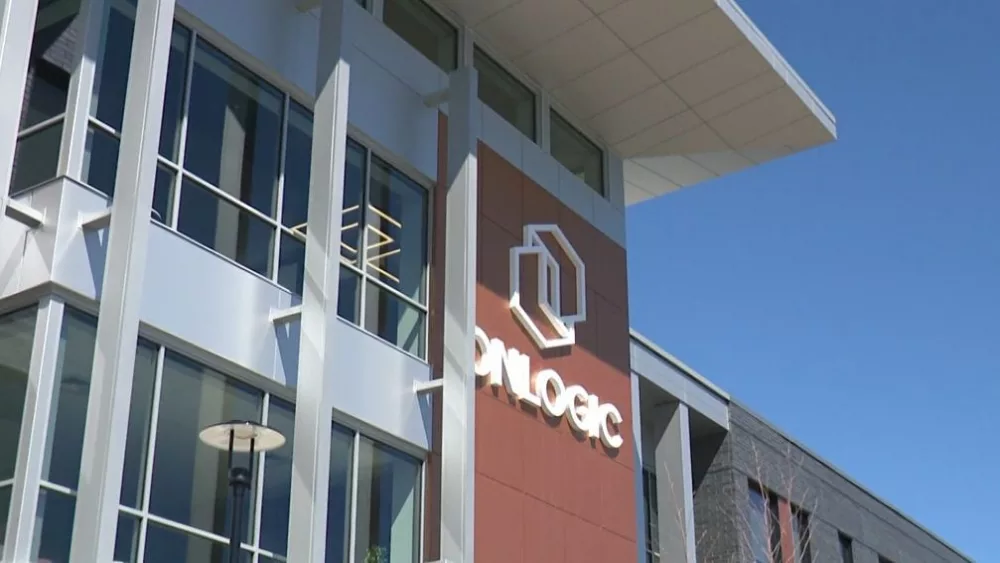SOUTH BURLINGTON, Vt. (WCAX) – The state of Vermont is making a multi-million dollar pitch to become a leader in cutting-edge technology that has the potential to reshape electronics. The state is hoping to convince the federal government to invest big bucks to expand the state’s newly designated “Tech Hub,” reaping benefits for the entire region.
In the assembly room at OnLogic, custom computers are churned out every day.
The South Burlington-based tech company prides itself on machines that are able to withstand environmental stressors that your laptop wouldn’t. “OnLogic is all about innovation, ” said the company’s Mike Kleiner.
That prompted them to step up to join Vermont’s burgeoning Tech Hub. The state got the designation last fall by the federal government as part of the CHIPS Act. The tech hub’s main focus is developing more efficient semiconductors from a compound called Gallium Nitride. GaN has the potential to take semiconductors — which are at the brains of most of our technology — to the next level.
“We’re definitely interested in GaN technology — we’re exploring it,” Kleiner said. But he says it’s not practical for them to use yet because there are challenges with options, compatibility, and pricing. “It’s just not that established yet like it is for other technologies like silicon-based, for example.”
It’s in their interest for GaN technology to improve because it might allow their computers to become smaller and more efficient. So OnLogic has stepped up to host a testing lab for GaN devices in their building. “Obviously, there’s a lot of back-and-forth when you do the testing, and you want to do that close by, where you actually have the production of the devices, so you have a very quick feedback,” Kleiner said.
OnLogic’s new 150,000 square-foot tech park in South Burlington includes space where the “characterization lab” will eventually go, but they first need funding from the feds to make it happen. “We needed more space. Especially when after COVID, everyone came back into the office — it was just not big enough. So, we needed a lot more space and we are really excited to be in this new building which gives us that space that we need, and we’ll also be good in size for a number of years,” Kleiner said.
“The proposals we submitted are ready to go,” said Doug Merrill, the regional innovation officer at the University of Vermont. He says Vermont made a Phase Two pitch to the feds for $36 million to fund six projects, including a design center for GaN projects at the University of Vermont and a prototyping center at GlobalFoundries in Essex Junction. He says the testing lab at OnLogic would test how those prototypes work. “This isn’t just going to provide economic activity in our region, it’s going to fundamentally accelerate the rate of technological innovation in a critical technology.”
Other Tech Hubs are fighting for those dollars though. Merrill says he thinks Vermont is up against about 20 or so pitches and only five to 10 might get funding. Where he thinks Vermont has an advantage — a quick turnaround on the investment. “Everything we’re doing now we believe is going to be up and running next January/February time frame,” he said.
That would be welcome news for Tech Hub member Resonant Link. The wireless charger company is just steps away from OnLogic and is already incorporating GaN into some of its devices. “GaN allows us to miniaturize a lot of stuff,” said company co-founder Phyo Aung. He says because their medical devices like pacemakers and neurostimulators need to be small — and charge without creating a lot of heat — GaN’s ability to convert power efficiently is key. “In a lot of the applications we use, especially in the medical applications, GaN is the only technology we can use and it’s the only technology that can deliver the performance that we need.”
Resonant Link also thinks GaN technology can improve all sorts of new technologies, including wireless drone charging. But while prototyping and testing new applications on their own is too expensive, the Tech Hub would make it possible.
Merrill says one of Resonant Link’s projects is part of Vermont’s pitch and real-world proof of what more federal investment could do here. “It ties together all of these elements and shows why this tech hub is so important to this region,” he said. Other elements in Vermont’s pitch include workforce development and administration to manage GaN projects.
Officials will find out later this summer if they get all or partial funding. If the feds say no, GaN initiatives won’t necessarily end here, but they would be scaled back and there won’t be a guarantee that the tech development — or job growth — happens in Vermont. And if they do get funding, the money might not end there. There will be a Phase 3 that Merrill says they already have ideas lined up for.

